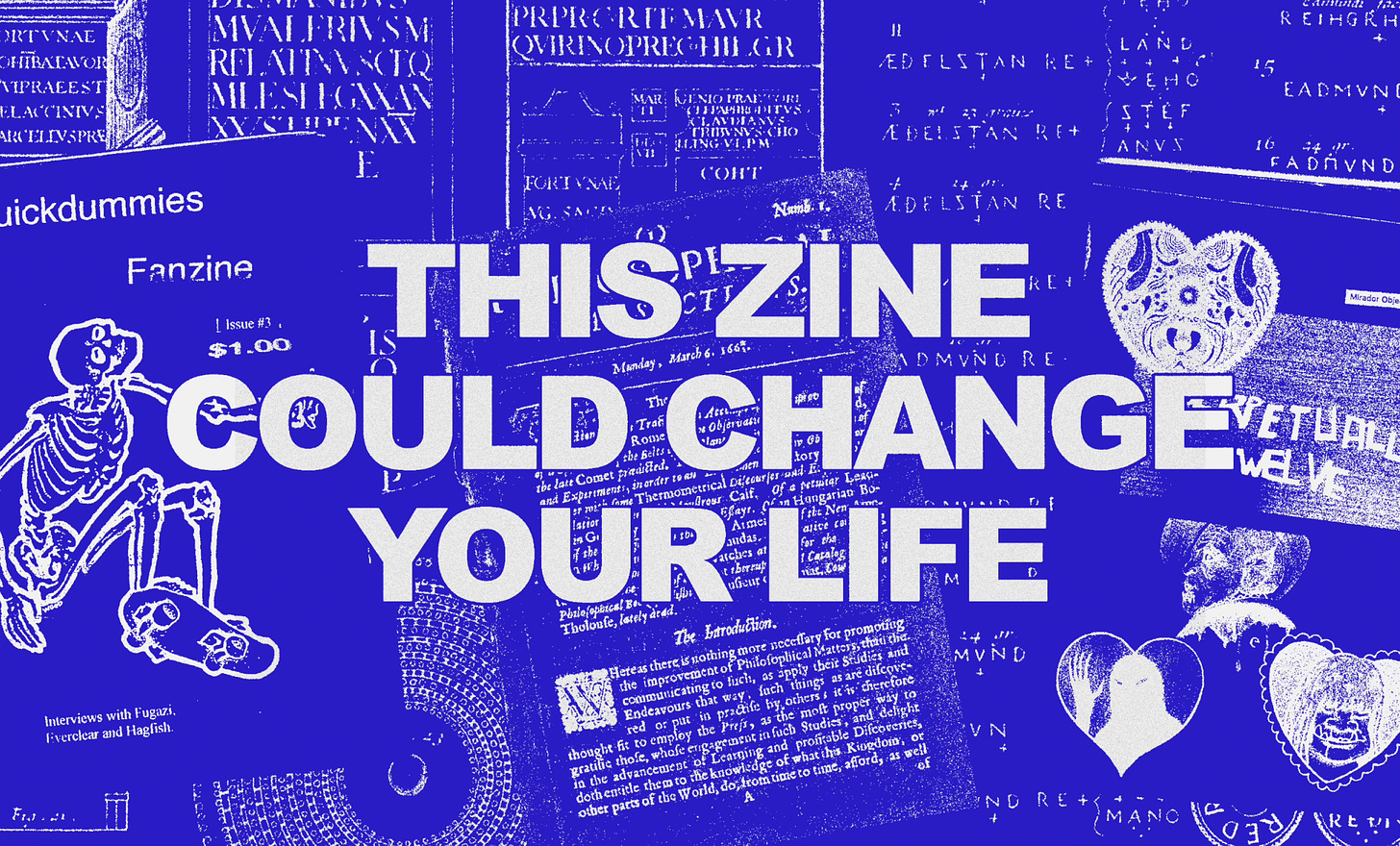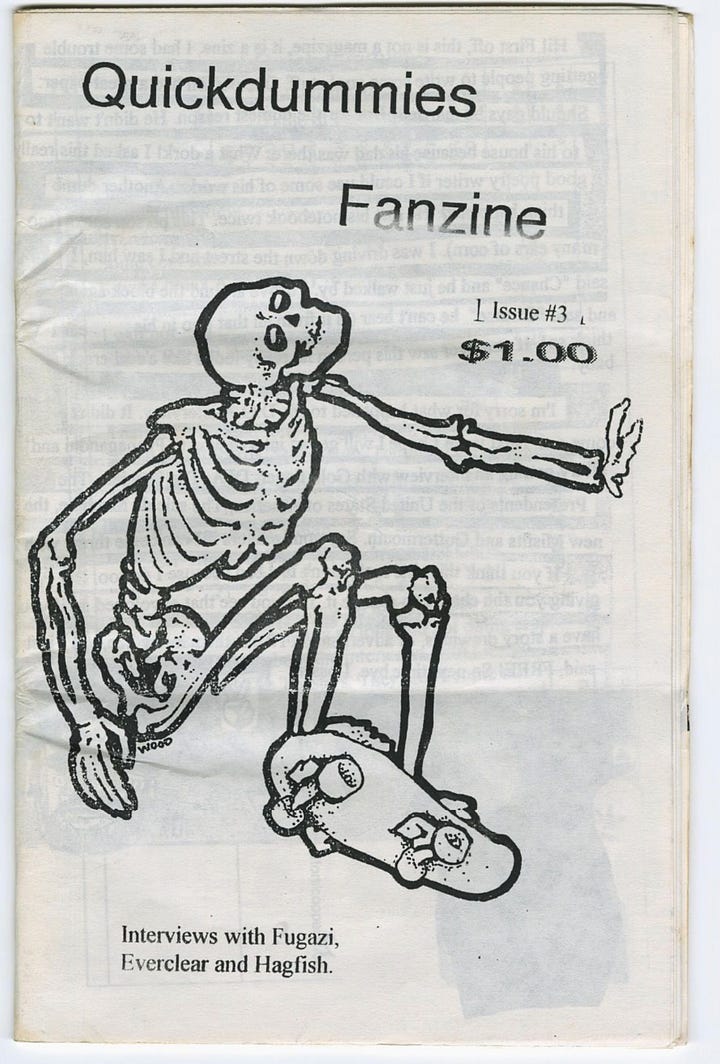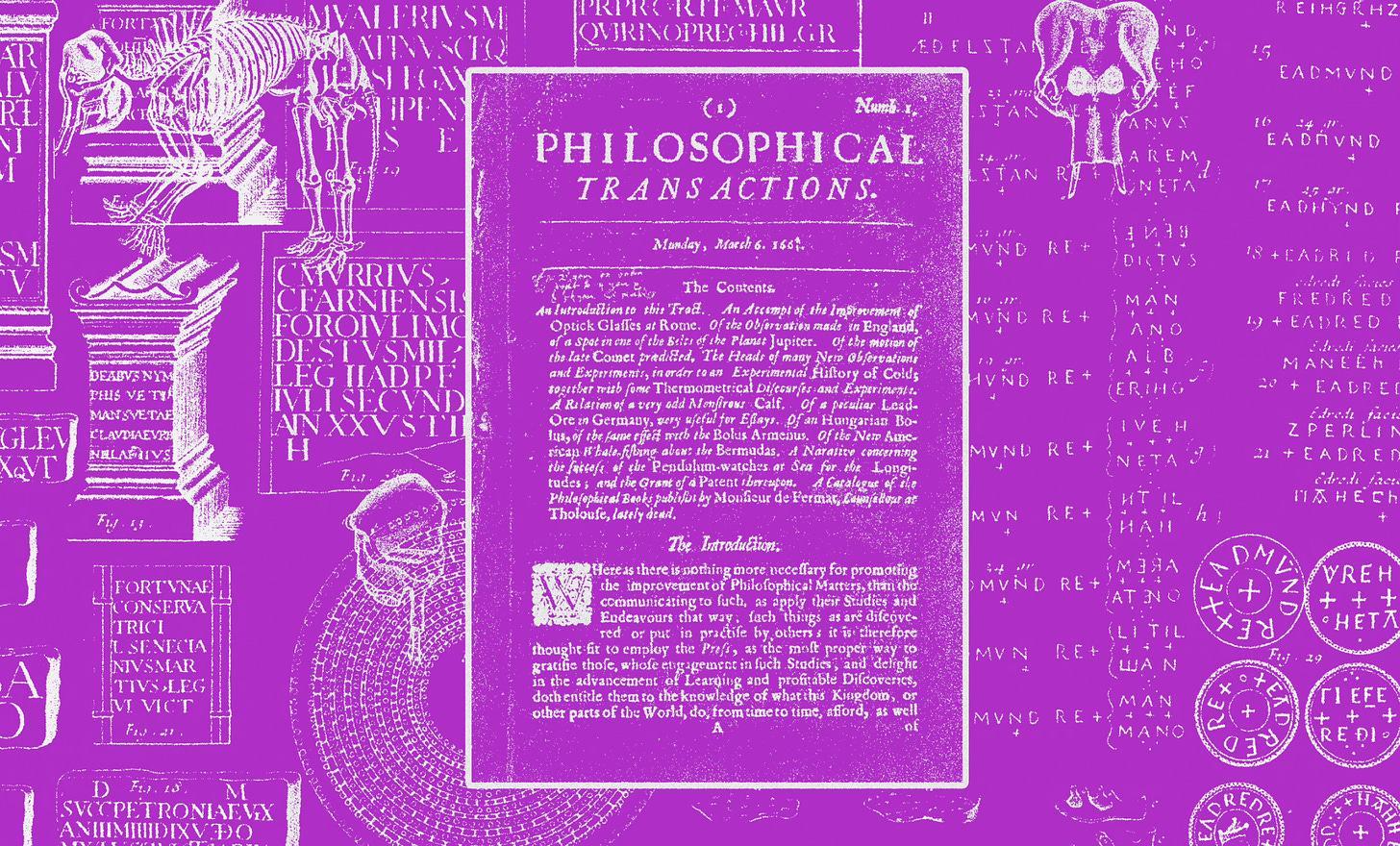This zine could change your life

Wild theory: the modern world started with a zine. This is not an accepted idea by any stretch, but it’s one this post might make you consider by the end.
What’s a zine?
Zine, if you’re unfamiliar, is short for “fanzine,” a derivative of “magazine.” Zines are handmade, self-produced publications mixing words and art where a person or people capture an idea, time, or space with deep specificity.
Unlike magazines, which are glossy and mass, zines are typically more handmade and small-run. What someone can afford to make, print, and staple on their own.
What zines lack in reach, they gain in freedom. By virtue of being small and personal, there’s no need to conform to the editorial standards or voice of the mainstream. A zine stands as its own world.
Scenes and zines
Zines have been on my mind because the editor of a zine on Washington D.C. punk rock I used to write for, called Held Like Sound, recently reached out. That editor, John R. Davis (who also played in the excellent D.C. band Q Is Not U), is now an archivist of something extraordinary: the largest digital collection of punk zines in the world, with more than 1,000 issues alone donated from the personal collection of Ian MacKaye, frontman of Fugazi and by far the most important figure in the scene.

(Go here to browse through the full archive, every page perfectly scanned. Amazing!)
Davis has written an upcoming book that traces the history of D.C. punk zines and zines in general, for which he invited me to write the afterword. Reading his manuscript and looking through scans of old zines takes me back to those times and reminds me how subtly powerful zines have long been.
Breakout zines
Zines are famous for small run-rates and obsessive productions. But even when the number of copies stays small, there’s a track record of some of those projects going on to make much bigger impacts.
Prominent record labels that began as zines include Sub Pop, Touch & Go, and Matador Records (via Conflict). Riot Grrrl, Vice, Giant Robot, and Bust started as zines. Odd Future started as a dream to make a zine.
These projects are outliers to be sure. In the ‘90s, during the zine heyday there were more than 50,000 zines made a year and not many are still alive and kicking. But it’s striking to note significant cultural forces that started out as zines.
The most important zine of all?
At the start of this piece I proposed that the modern world started with a zine. Allow me to close by making the case.
In 1660 a group of academics in London started meeting weekly in a pub to discuss their frustration with their profession. In the world of “Natural Law,” which they specialized in, facts were commonly decided by a decree of the church or the king. Fed up, they decided to start a new group dedicated to proving facts through evidence instead. They adopted a motto – “take nobody’s word for it” – and begin their quest.
A few years later, in 1664, the group published its first release, called Philosophical Transactions. A handmade publication containing the details of several experiments that people in the group had run. The very idea of conducting an “experiment” was something new. But as each new issue was published, the nature of how to conduct an experiment, as well as the secrets of nature itself, began to be accepted.

In the following years, writings by Isaac Newton, Benjamin Franklin’s kite experiment, the first computer and microscope, and even the creation of the Scientific Method itself were first published in the pages of this proto-zine. From this collective publication, the Scientific Revolution, modern science, and the modern world were born.
Zine power
It’s not the zine format that’s so magical, but the invitation a zine provides. A space for us to define, pour ourselves, and explore who we really are (or who we find it fun to play like we are). Zines provide a place to play, which helps unlock things we naturally love and are curious about. The kind of energy that attracts others who feel the same way.
This is the raw power of the zine. A conduit for new cultural ideas, deep curiosity, and the transformation that unfolds when a small group of people commit their ideas to the page.






Member discussion